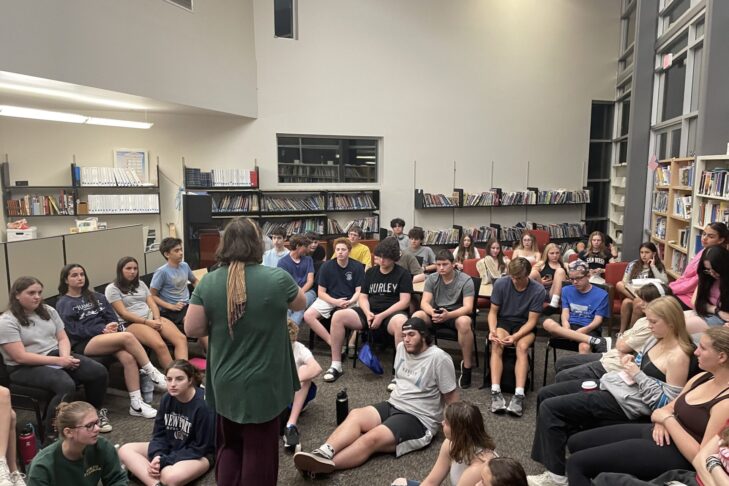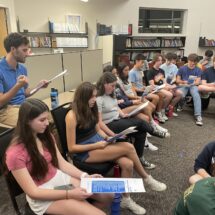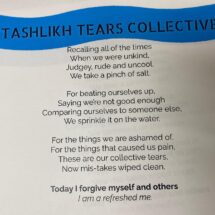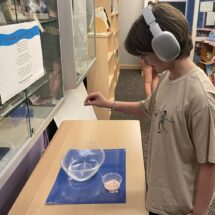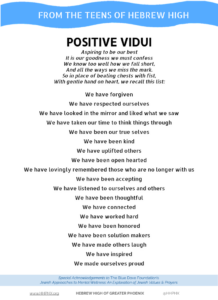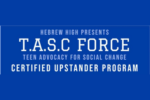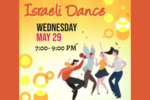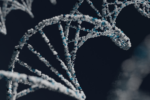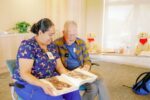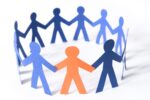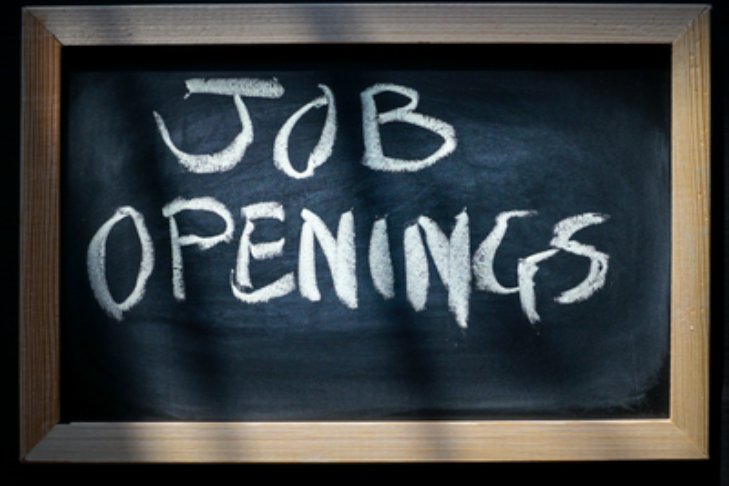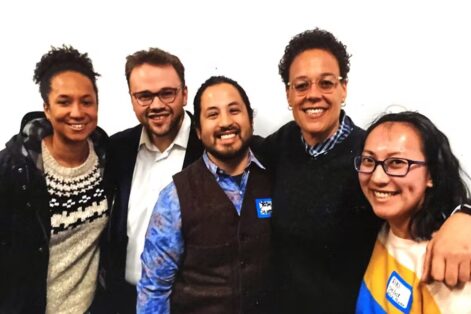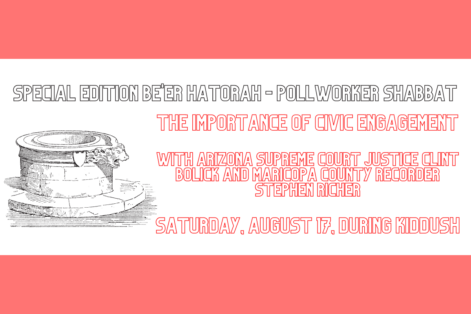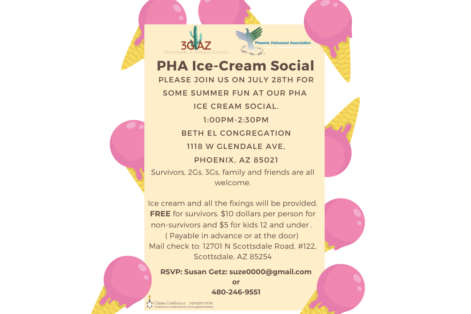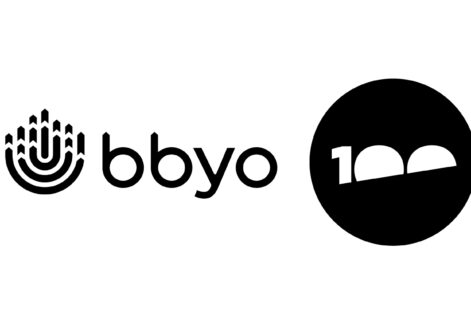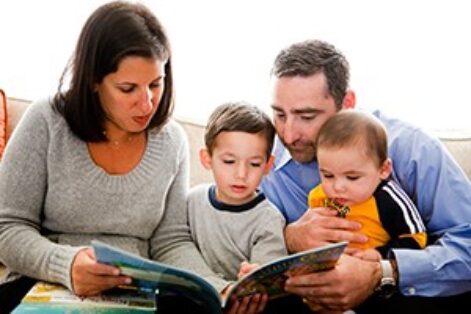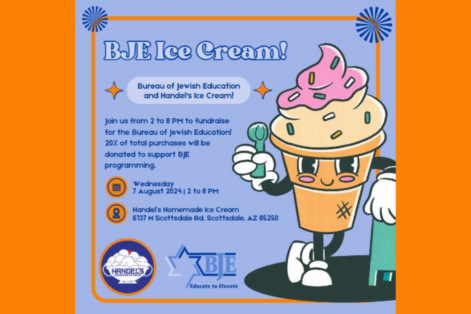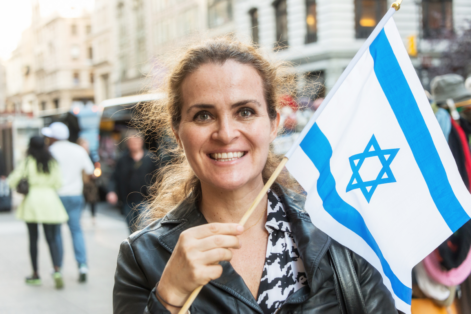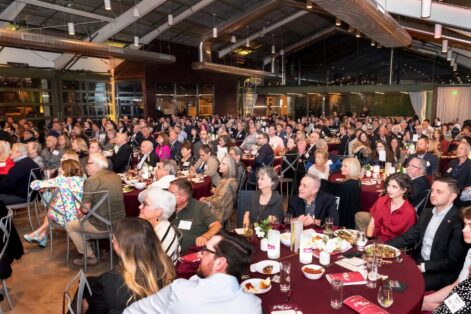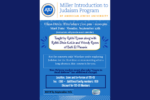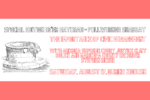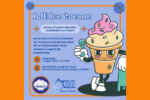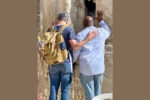Tuesday night (9/19), the teens of Hebrew High gathered in the BJ Jewish Community Library between their weekly classes to take a deep dive into the world of the Yom Kippur Vidui, the confessional prayer that recounts all the ways we as people have transgressed against each other and God.
The list is troubling at best, and for the majority of people who have never committed nearly have of these transgressions, it can feel confusing and alarming to recite so many gruesome behaviors. However, teens were able to pull out some incredible insights with this list.
“This list is helpful for each of us to recognize what mistakes we have made. There is something for everybody on this list. This gives us a chance to heal together with others who are going through the same thing.”
“While I can see how I’ve fallen short, perhaps this list is here to help us forgive those who have done these things to us.”
(WOW! Love this reflection!)
However, here is the confession.
When I asked the room how many of them beat themselves up after a mistake (either intentional or unintentional), a sea of hands shot up.
When I asked how many of them say terrible things to themselves, the same thing happened.
When I asked how many on a regular basis speak kindly to themselves, can you guess what happened?
Not much. Only a few people could hold their hands up.
We are awful to ourselves, and on the general, many of us struggle with low self-esteem and are way harder on ourselves than we would be on any other person. Calling out our inefficiencies and our mistakes can make most people shut down and feel even worse about themselves. Resonate?
The Blue Dove Foundation, an organization created to address mental illness and addiction in the Jewish community, noticed the possible negative impact the Vidui can have on teens who struggle with their mental health, so they created an exercise to allow for teens to highlight the things they do well – positive confessions, if you will. They write:
We need to be mindful of the complexity of human life and its ups and downs, and that we are far more than any one label, misdeed or illness. Just as the Vidui serves as a catch-all for misdeeds we might have done that we might not even have been aware of, we should recognize there are plenty of good deeds we performed as well without realizing it. We are not our sins, we are not our mistakes, we are not our diagnosis. We are human and created in God’s divine image.
So, we shifted the conversation to what words help us to actually become better. What things have we done in the past that we want to carry into the future? A list of positive aspirations serves as a powerful reminder of the values and qualities we aim to embody in our interactions with the world.
Students had the chance to write their positive confessions and then contribute to our collective poem, shared with you below.
This year, Hebrew High’s focus is exploring Torah through the lens of mental wellness to ensure teens have regularly opportunities to feel supported and encouraged as they face the pressures and stressed of daily life. This program allowed for teens to reframe what they need to admit to themselves in order to foster a healthier self-view and to remind themselves just how wonderful they already are.
After the program, students were able to cleanse themselves of the pains and hurts they carry with a twist on tashlikh – sprinkling salt on water to purify our collective tears.
See below photos from this important event:
This post has been contributed by a third party. The opinions, facts and any media content are presented solely by the author, and JewishPhoenix assumes no responsibility for them. MORE


